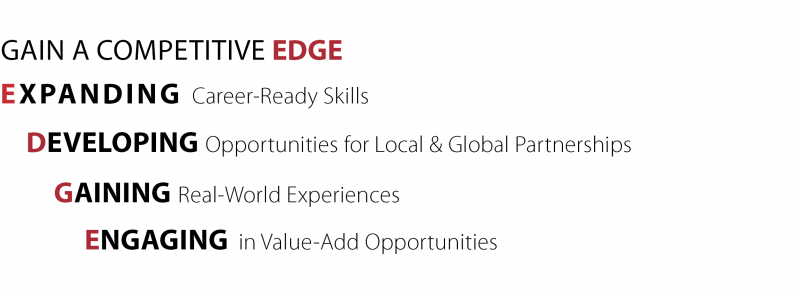
Experiential learning programs offer you a hands-on way of learning that allows you to expand your knowledge and skills. Set yourself up for success in your future career, by gaining skills employers search for such as problem-solving, decision making, teamwork, and critical thinking. From internships and apprenticeships to academic courses and challenges, you have a range of experiential learning opportunities to ensure a successful bridge between your time at Arts and Science and your future career.
Participating in experiential learning activities in Arts and Science can have a very positive impact on your academic and professional careers.
Benefits of experiential learning opportunities include:
- Connecting theory to practice
- Developing critical thinking & reflection skills
- Improving problem solving skills
- Engaging with diverse communities
- Communicating with a variety of audiences using a variety of methods
- Developing resilience
- Building confidence
- Investing in the learning process
Learn more about the incredible experiential learning programs and courses offered in the Faculty of Arts and Science below.

